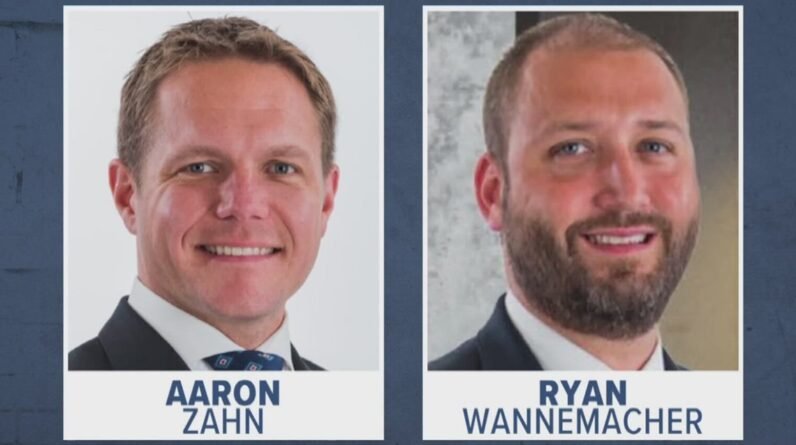
The federal trial of Aaron Zahn and Ryan Wannamacher begins Wednesday morning. They’re accused in what has been called the largest fraud case in Jacksonville history
JACKSONVILLE, Fla. — Former JEA CEO Aaron Zahn and former CFO Ryan Wannemacher go to trial Wednesday in federal court, in what has been called the largest fraud case in Jacksonville history.
The two executives are accused of masterminding a plot to privatize sell JEA — the largest public utility in the state of Florida — and skim a profit off the top. Prosecutors say it’s a scheme that could have stolen millions of dollars from Jacksonville taxpayers.
The charges are conspiracy and wire fraud. The two will be tried together, but with separate juries.
A federal indictment alleges they worked together from March 2019 through November 2019 on a bonus plan that “would have paid hundreds of millions of dollars in bonuses, primarily to the top JEA executive including themselves” if JEA was sold. At the time, JEA was meeting with bidders and devising a plan to sell.
The two are accused of using secretive methods, included password-protected thumb drives, encrypted messaging services, erasable white boards and hand-delivering documents to avoid them being shared, to keep their plans to sell under wraps.
They are also accused of misrepresenting the state of JEA to try to sweeten the idea of privatization. Jacksonville residents received flyers that talked about JEA floundering financially; claims were made that the company would have to conduct huge layoffs to make up lost profit — unless JEA was sold. One JEA board member referred to the future of JEA as “a death spiral,” as Zahn’s team pushed the idea that the sale must happen. The Florida Times-Union uncovered JEA’s filings to state regulators, projecting a far more optimistic forecast of the utility’s future, contradicting the “death spiral” narrative.
The crux of the case against Zahn and Wannemacher is an incentive program called a “performance unit plan” or PUP for short. The concept involved JEA selling units to employees at $10 apiece. The value of the units would change according to how much the utility improved its financial value after three years, or sooner in the event of a JEA sale.
The amount of units available to purchase would increase with an employee’s rank, meaning senior executives had far and away the most.
The indictment of Zahn and Wannemacher alleges they knew that if JEA were sold, the formula for the PUP payouts to employees would result in a huge windfall for them and other high-standing JEA employees. Higherups could pocket a chunk of the net sales proceeds that otherwise would have gone to taxpayers as a result of selling the city-owned utility.
The indictment alleges Zahn and Wannemacher conspired to make “false and fraudulent representations to the JEA board and and others” in order to conceal how much money the PUP would generate for them if the city sold the utility.
The Times-Union reported that based on the profit expected from a potential sale of JEA — in the $6 billion range — the bonus plan would be worth hundreds of millions of dollars. Most of that would have gone to the utility’s top executives.
Zahn was placed on administrative leave the JEA board after he was questioned on the bonus scheme by Jacksonville’s city officials.
Then-Jacksonville Mayor Lenny Curry pulled the plug on the sale effort on December 24, 2019. The effort had been overshadowed by scandals over secrecy and Zahn’s controversial tenure at JEA, and was quickly falling apart.
Zahn was terminated with cause soon after.
The trial is expected to last between two weeks and one month.
Opening statements are set for Wednesday morning.
First Coast News will be in the courtroom providing updates throughout the trial.







